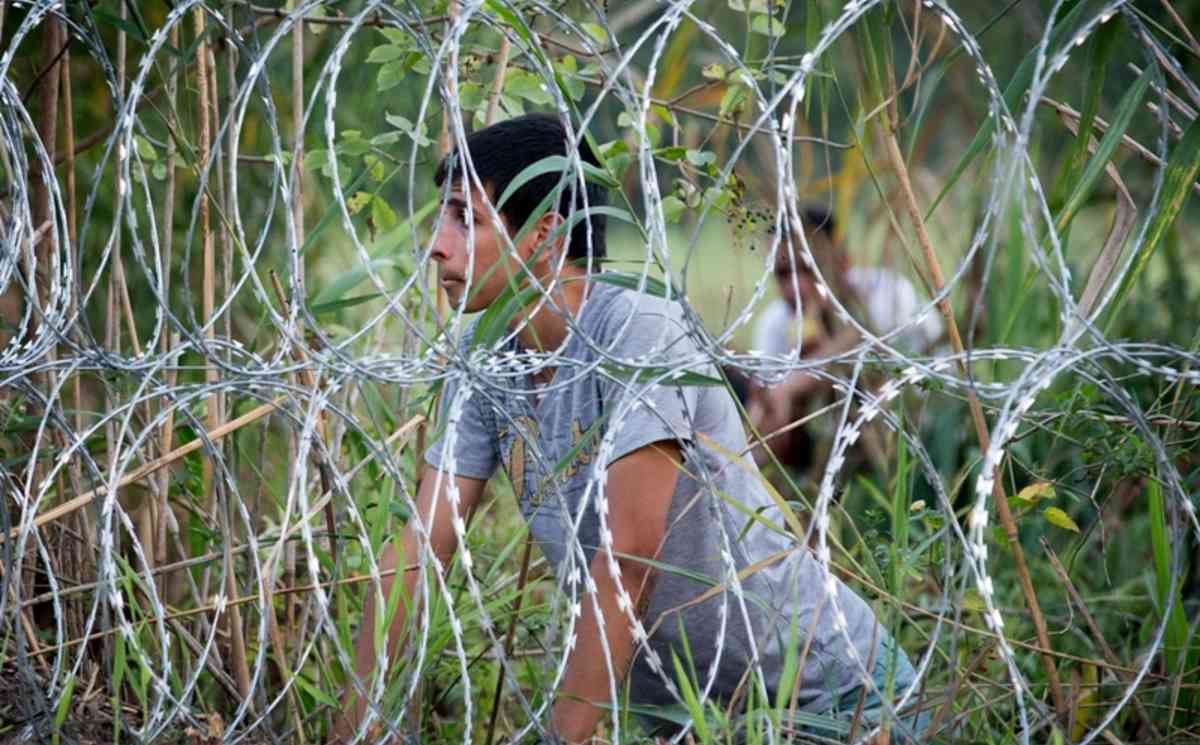
Broken by the brutal enforcement of the European Union’s austerity measures, Greece has been left to police the massive migrant crisis erupting now in the eastern Mediterranean. Around a million migrants landed on mainland Greece or its islands in 2015, and up to a further 50,000 in January 2016, despite appalling weather in the Aegean Sea, the route they are forced to take from Turkey and the Middle East. Over 850,000 refugees crossed Greece and into the northern European Union countries, seeking safety, homes and work. Greek islands struggled to cope with up to 5,000 refugees per day; thousands have drowned, among them over a hundred children.
The Greek government is still under threat of expulsion from the Eurozone if it fails to meet its debt obligations under the third bailout agreement signed in 2015. Now the EU wants Greece to set up camps for hundreds of thousands of migrants to register, check and fingerprint them. If it is unable to comply then it might be excluded from the Schengen zone. The Greek Immigration Minister says that he was told by the Belgian government to ‘push’ migrants ‘back into the sea’ to solve the crisis.
Open the border at Evros!
Over the weekend of 24/25 January 2016 migrant solidarity protests took place at Greece’s Evros land border with Turkey where a seven-mile fence has been built with EU money. Both states are bankrolled by the EU to act as policemen for Fortress Europe. Greece became the first operational base of Frontex (the European border police force) outside of its Warsaw HQ in 2010. An Amnesty International report of 2014 labels this critical area as ‘a laboratory’ for Frontex operations and noted the fatal correspondence between increased controls imposed since 2012 and the desperate use of sea crossings over the Aegean. The deaths that have taken place since are not accidents but a direct consequence of EU policy. In a demonstration that it was trying to comply with EU requirements, the Syriza government sent riot squads to police the Evros protest, and has started to arrest foreign volunteers who are assisting migrants to land on Greek soil.
Austerity bites deeper
The Syriza government faces mounting opposition to its austerity plans for 2016. With government debt at a record and unsustainable level of 187% of GDP, Syriza is determined to sell off as many publicly-owned assets as possible and to implement yet further cuts in pensions and tax hikes for the poor. Living standards, which have fallen by 25%, are set to drop much further.
More than 1.2 million workers are unemployed and face destitution because of cuts in benefits. Pensioners, whose incomes have already been reduced on 12 occasions, face yet more cuts: the EU complains that the system is too generous although pensions have fallen to €360 a month. Farmers face an increase in social security contributions from 6.5% to 27% and a doubling of tax rates, from 13% to 26%. A fiscal gap of €1.8bn has been discovered in this year’s budget, and Greece’s creditors – the troika of the EU, EC and the IMF – are demanding that it be closed.
While the Troika continues to hammer the Syriza government, opposition to austerity is mounting. On 21 January, farmers, fishermen and stock breeders took to the streets to be joined by public sector workers. ‘It’s war’ said a corn grower quoted in The Guardian; ‘If they [politicians] go on pushing us to the edge, if they want dehumanise us further, we will come to Athens and burn them all.’ Convoys of tractors blockaded road as part of the protest, cutting the main north-south highway. Riot police attacked demonstrators who had barricaded the Agriculture Minister in an administrative building in Komotini. A General Strike has been called for 4 February: the Greek people are mobilising against the Syriza government and the Troika. The question is whether these struggles will take up the cause of migrant rights: without a fight against racism, the Greek ruling class will have no hesitation in disposing of Syriza and turning to the fascist Golden Dawn to split any resistance.




